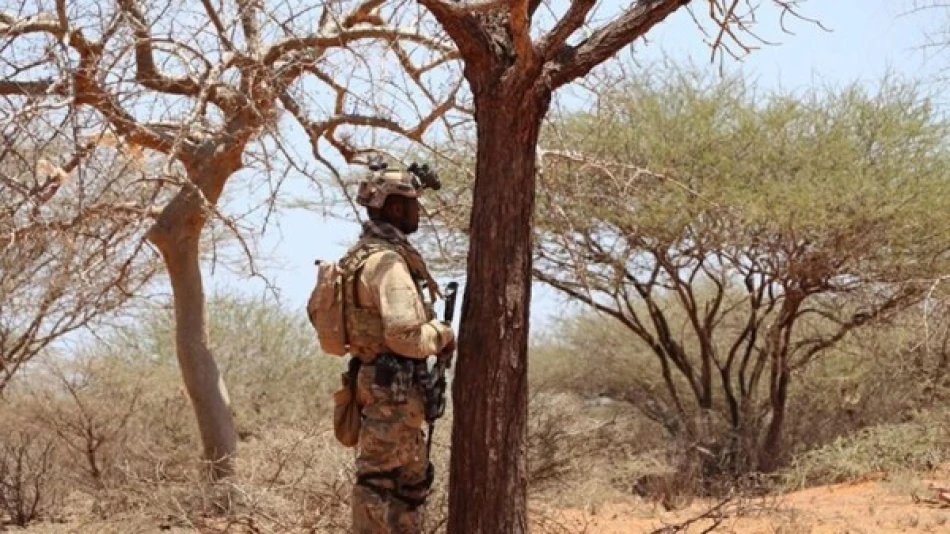
Somalia Counterterrorism Operation Neutralizes Dozens of Extremists
Somalia Claims Major Victory Against Al-Shabaab in Strategic Southern Offensive
Somali government forces, backed by Ugandan troops, have dealt what appears to be one of the heaviest blows to Al-Shabaab militants in months, killing over 120 fighters and seizing the strategic city of Barire in Lower Shabelle province. The operation marks a significant escalation in Somalia's renewed push to eliminate the Al-Qaeda-affiliated group that has terrorized the Horn of Africa for over a decade.
The Battle for Lower Shabelle
Defense Minister Ahmed Moallim Fiqi announced the casualty figures during a press conference, describing a week-long military campaign that culminated in the complete capture of Barire, a strategically important city in Lower Shabelle province south of Mogadishu. The operation was conducted jointly by the Somali National Army and Ugandan Defense Forces operating under the African Union Transition Mission in Somalia (ATMIS).
"Our army has triumphed and raised the morale of the people. The war will continue until all of Somalia is cleansed of terrorism," Fiqi declared, signaling the government's commitment to an intensified counter-terrorism campaign.
Strategic Significance of the Victory
Lower Shabelle province has long served as a crucial corridor for Al-Shabaab, connecting their rural strongholds to the capital Mogadishu. Control of cities like Barire allows the militant group to collect taxes, recruit fighters, and launch attacks on government positions and civilian targets. The province's agricultural wealth also provides Al-Shabaab with significant revenue streams through extortion and taxation of farmers.
International Partnership Proves Decisive
The success highlights the continued importance of international military cooperation in Somalia's fight against extremism. Ugandan forces have been instrumental in Somalia since 2007, first under the African Union Mission in Somalia (AMISOM) and now through ATMIS, which is scheduled to complete its withdrawal by December 2024.
This timeline adds urgency to current operations. With international forces preparing to leave, the Somali military faces pressure to demonstrate it can independently maintain security gains. The Lower Shabelle victory could serve as a crucial confidence-builder for both domestic and international audiences questioning Somalia's readiness for full security responsibility.
Broader Regional Context
The operation comes amid a broader regional effort to combat terrorism in East Africa. Similar multi-national approaches have shown mixed results across the Sahel and Horn of Africa, where groups like Al-Shabaab, Boko Haram, and various Al-Qaeda affiliates continue to operate despite years of international military intervention.
Challenges Ahead
While the government's claims suggest a significant tactical victory, Al-Shabaab has demonstrated remarkable resilience over its 15-year insurgency. The group has previously absorbed heavy losses only to regroup and launch devastating counter-attacks. Their ability to blend into civilian populations and maintain support networks in rural areas has consistently frustrated government efforts to achieve lasting security gains.
The true test of this operation's success will be whether Somali forces can hold captured territory and prevent Al-Shabaab from simply relocating their operations to other regions. Historical patterns suggest the militants may respond with increased attacks on soft targets in Mogadishu or other government-controlled areas.
Economic and Political Implications
For Somalia's government, military victories provide crucial political capital as President Hassan Sheikh Mohamud seeks to consolidate federal authority and attract international investment. Demonstrating effective counter-terrorism capabilities could unlock additional foreign aid and potentially encourage diaspora investment in the country's reconstruction.
However, sustainable progress requires more than military success. Somalia must address the underlying governance failures, economic marginalization, and clan conflicts that Al-Shabaab exploits to maintain relevance among certain communities.
Most Viewed News

 Layla Al Mansoori
Layla Al Mansoori






